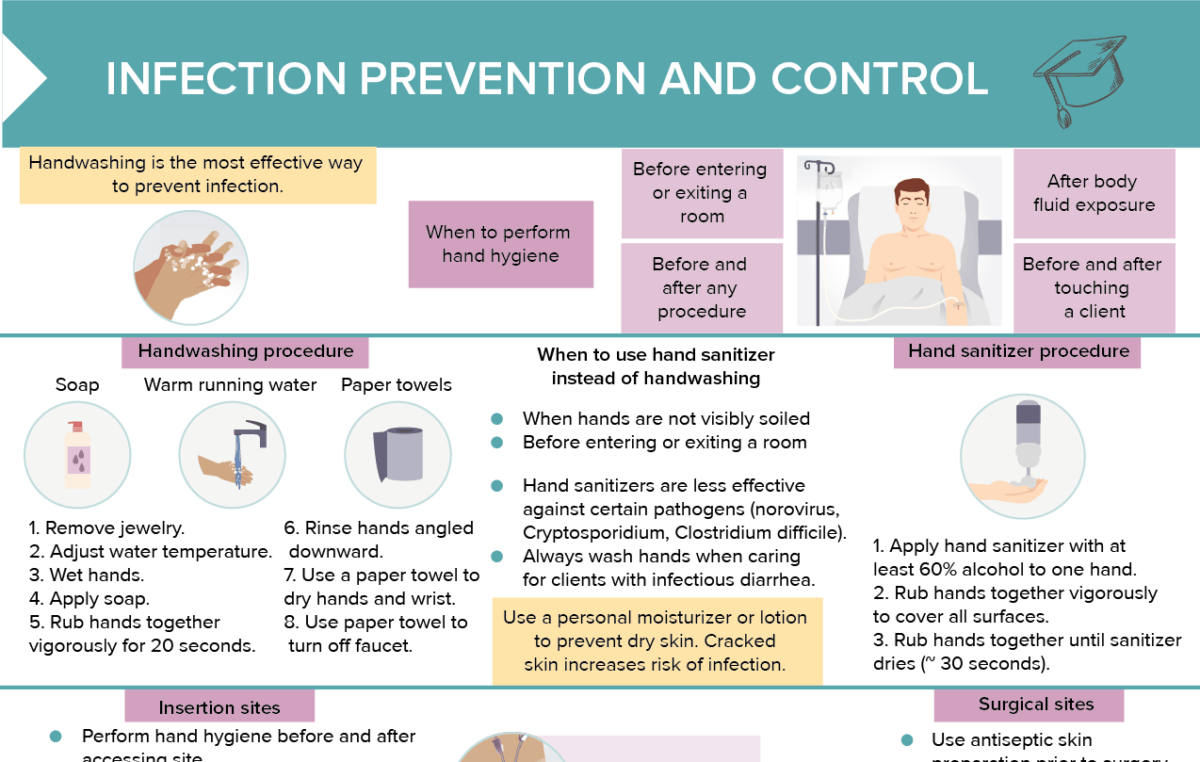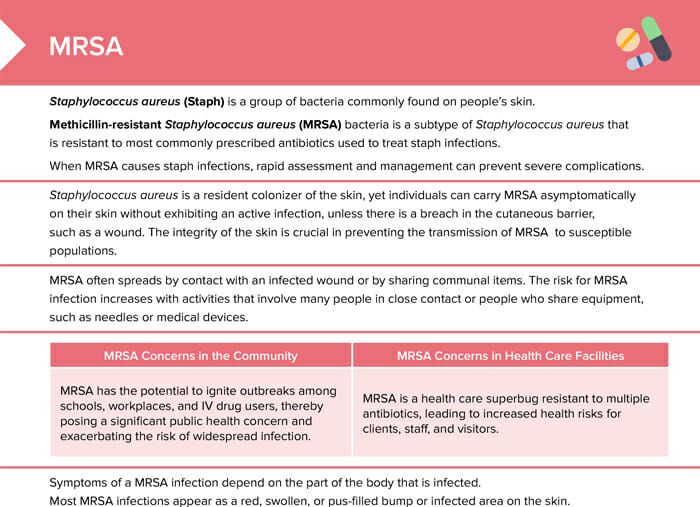What is MRSA?
MRSA is a medical diagnosis and a subtype of Staphylococcus aureus that is resistant to most commonly prescribed antibiotics used to treat staph infections.
What are the symptoms of a MRSA infection?
Most MRSA infections appear as a red, swollen, or pus-filled bump or infected area on the skin. Symptoms depend on the part of the body that is infected.
Nursing diagnoses for MRSA
Potential nursing diagnoses:
- Acute pain: pain medication and comfort measures, regular assessments with pain scale
- Impaired skin integrity: regular wound care with appropriate dressings and prescribed topical treatments
- Anxiety and deficient knowledge: reassurance and supportive environment, provide clear and accurate information
- Risk for infection: maintain strict hygiene, monitor for signs of worsening infection, and follow antibiotics administration plan
How does MRSA spread and what can be done to prevent transmission?
MRSA often spreads by contact with an infected wound or by sharing communal items. To prevent transmission, maintain good hand and body hygiene, keep cuts and wounds clean and covered until fully healed, avoid sharing personal items such as towels or needles, and get tested early if a MRSA infection is suspected.
Who is at risk for a MRSA infection?
The risk for MRSA infection increases with activities that involve many people in close contact or people who share equipment such as needles or medical devices.
How can MRSA infections be treated?
MRSA infections are usually treated with antibiotics that the bacteria are still sensitive to, like vancomycin, daptomycin, or linezolid. The choice of antibiotic and the duration of treatment will depend on the location and severity of the infection.
If MRSA is causing a skin or soft tissue infection, proper wound care is essential. This might include cleaning the wound, applying dressings, and possibly assisting with procedures like abscess drainage. Follow all infection control protocols to prevent the spread of MRSA to other clients or healthcare workers.
What are some complications that can arise from an untreated MRSA infection?
If left untreated, MRSA infections can lead to fever, sepsis, pneumonia, bloodstream infections, and other severe complications.

